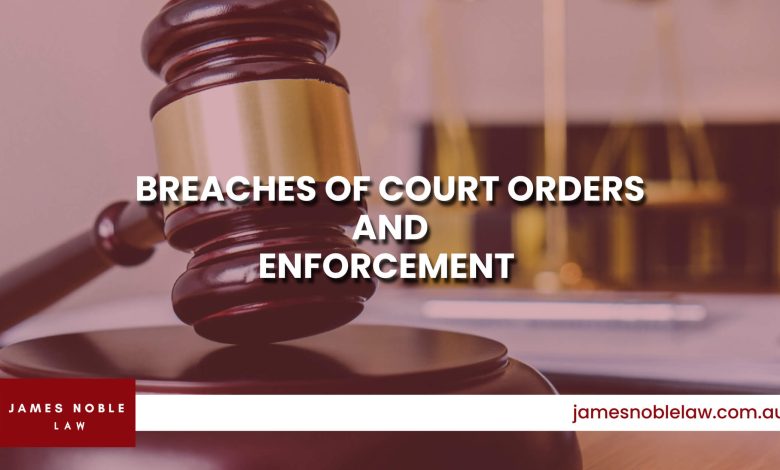Breaches of Financial Court Orders and Enforcement

Breaches of Financial Court Orders are common, though not ideal in Family Law matters.
Especially for property matters where large sums of money. are to be paid and transfer of property is to be arranged.
In general, financial orders require payment of a sum of money. or the transfer of property/chattels.
When a party refuses or fails to pay the sum or do all necessary. for the transferred property.
they default their obligations under such orders, and the other party is able to enforce the Court order.
There are essentially three (3) options when a breach of financial orders occurs, being:
- Application to Vary or Set Aside;
- Application of Enforcement; or
- Do nothing
It is up to the party that is affected by the non-obligement of the orders to decide what option they wish to take.
An Application to Vary or Set Aside would usually work
if the Court orders were made on an interlocutory (interim) basis and were inefficient.
Improperly drafted, or unable to be complied with.
This application can only be made in accordance with section 79A and section 90SN of the Family Law Act 1975.
Blackwell & Scott (2017) FLC 93-775 demonstrated a successful Application to Set Aside the orders.
where the de facto husband did not make payment to the de facto wife of $130,000 for 13 months after
he was required to do so by the Court orders.
An Application for Enforcement can be made if the orders were appropriately drafted and are able to be enforced.
breach of financial orders occurs
Rule 2.01 of the Family Law Rules 2021 sets out the required application to be filed with the Court.
Rules 11.01 to 11.09 set out the rules for drafting and filing an Application for Enforcement. Before any application is filed.
it is generally best to draft a letter to the other party requesting they fulfill, their obligations under the orders.
Doing nothing may not sound appealing to a party who wants the money and/or property they were ordered to receive.
however, it can sometimes work in their favor.
If a party decided not to comply with interim orders.
it might be beneficial to allow the presiding judicial officer to draw the inference that the failure to comply with such orders may not have assisted their case.
This can be seen in the case of Jones v Dunkel (1959) 101 CLR 298.
It can also be more cost-effective to bring an interim application. seeking compliance with the orders, especially.
If the trial is upcoming, as it can be dealt with at the final hearing.
All of our solicitors are admitted to practice in the Family Court of Australia. Federal Circuit Court of Australia and Supreme Court of Queensland.
Our professional staff regularly conduct family and de-facto law matters in these jurisdictions and are experienced litigators.
In addition to the many years of intensive study and testing required to become a solicitor.
With the qualifications to practice law in Australia.
Please contact the Brisbane Family Lawyers team at James Noble Law today for a FREE.
No-obligation 20-minute consultation.
To schedule an appointment with one of our Qualified and experienced Family lawyers Brisbane.
Find family lawyers Brisbane on Google Maps near you.
For more information, please visit our website: Breaches of Financial Court Orders






